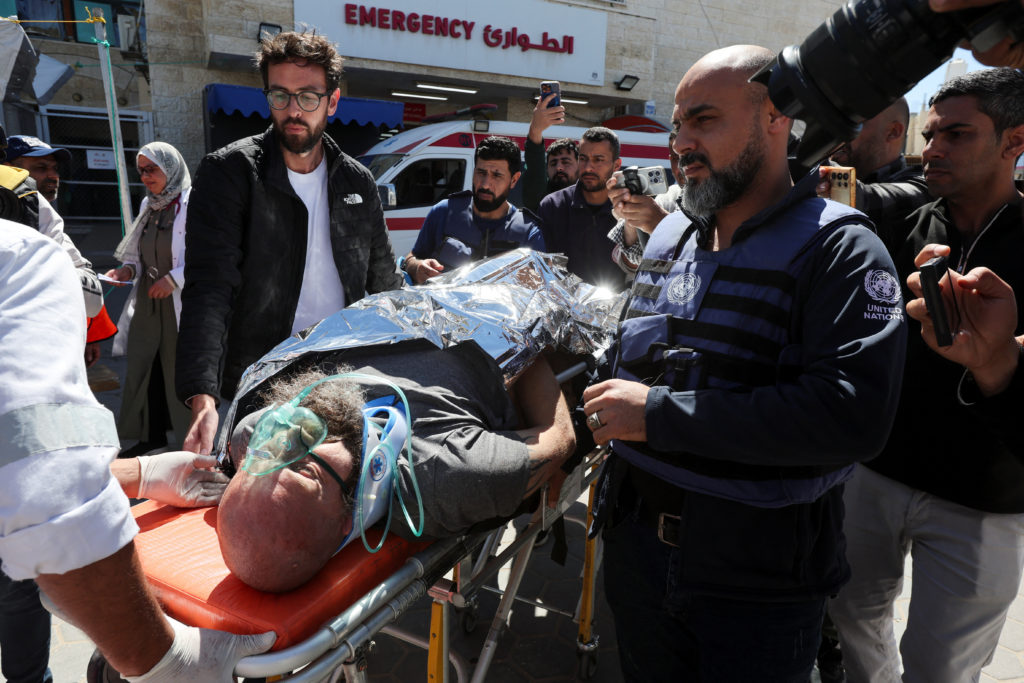
A foreign worker, who was wounded in an Israeli airstrike on a United Nations headquarters, according to Gaza's health ministry, is brought into Al-Aqsa Martyrs hospital, in Deir Al-Balah in the central Gaza Strip March 19, 2025. REUTERS/Ramadan Abed
The United Nations has announced a reduction in its international staff presence in the Gaza Strip following a fatal incident involving an Israeli tank strike on a U.N. compound. The strike occurred on March 19, resulting in the death of one U.N. staff member and injuries to five others. Despite Israel’s denial of responsibility, U.N. Secretary-General spokesman Stéphane Dujarric stated that available information indicates Israeli involvement.
In response to the incident and escalating security concerns, the U.N. has decided to reduce its international staff in Gaza by approximately one-third, while maintaining a significant presence through its national staff, primarily those working for the United Nations Relief and Works Agency (UNRWA). This decision comes amid a severe humanitarian crisis, exacerbated by Israel’s blockade of essential supplies to Gaza and the resumption of military operations against Hamas, leading to numerous Palestinian casualties.
Safety concerns have led the U.N. and its partners to suspend several activities, particularly in education, protection, and essential services. The movement of aid trucks, including those distributing water, has been affected, and only 29 out of 237 temporary learning spaces have resumed activities since the ceasefire collapse.
The U.N.’s decision to reduce its footprint in Gaza underscores the challenges faced by humanitarian organizations operating in conflict zones and highlights the urgent need for measures to ensure the safety and security of aid workers.







